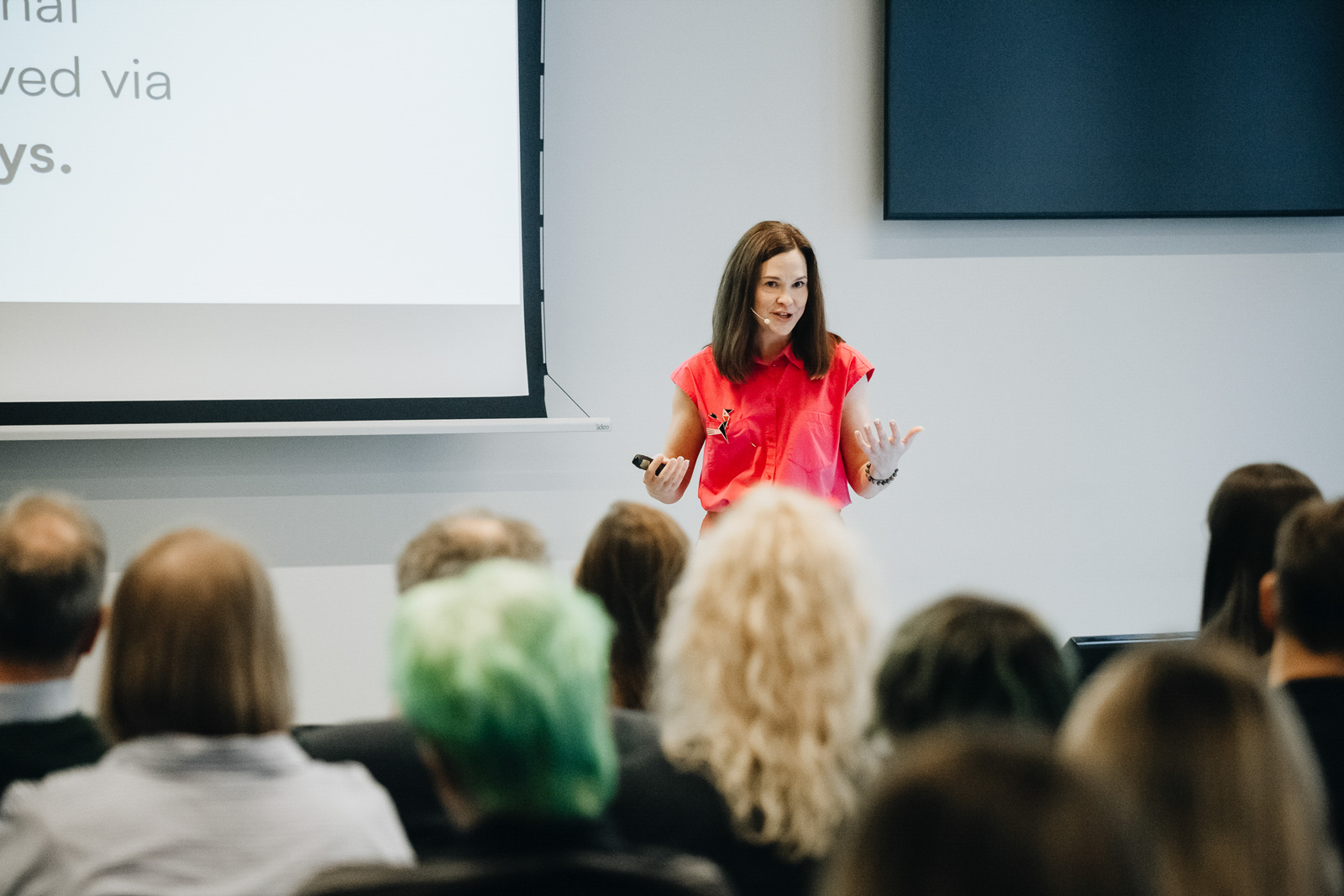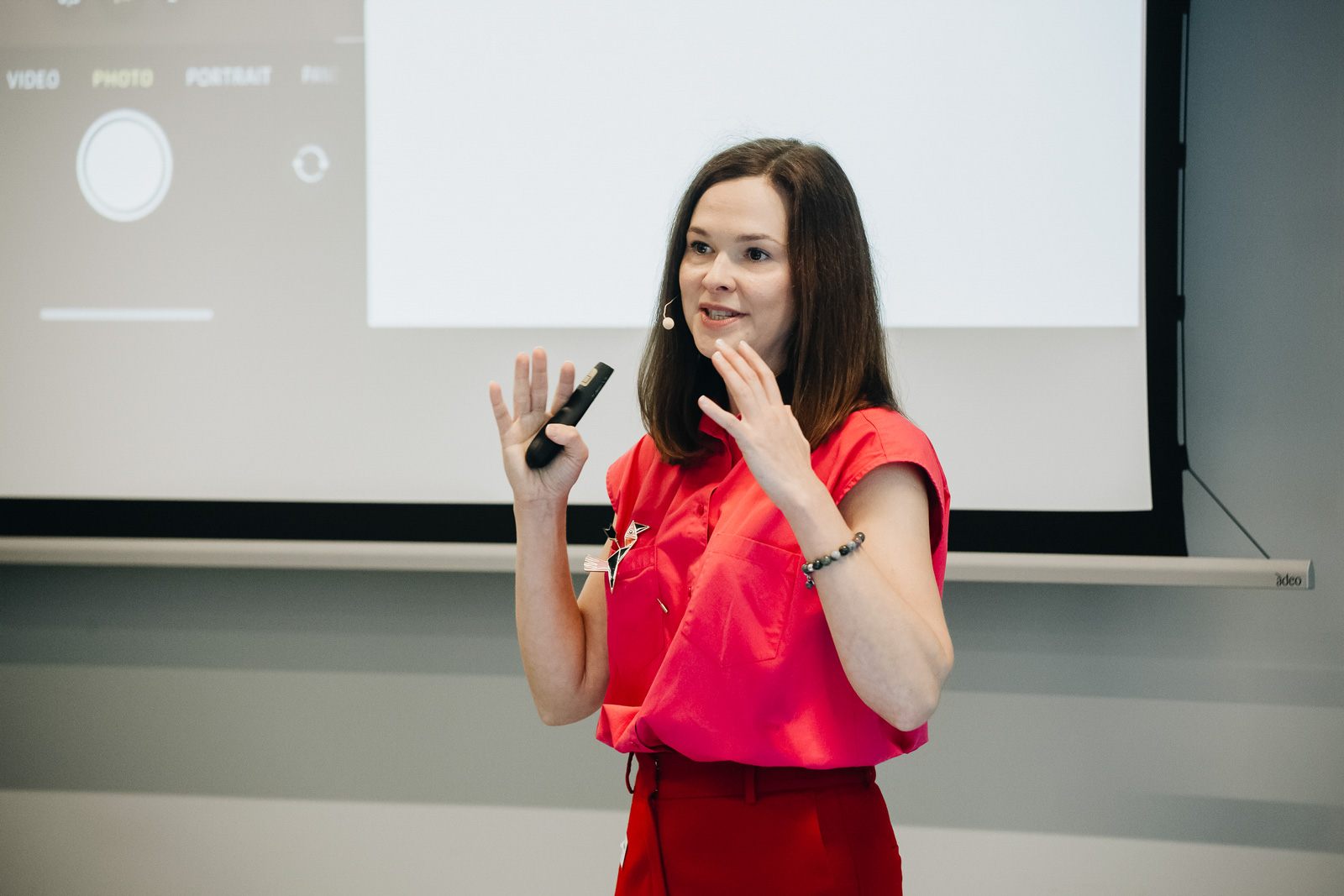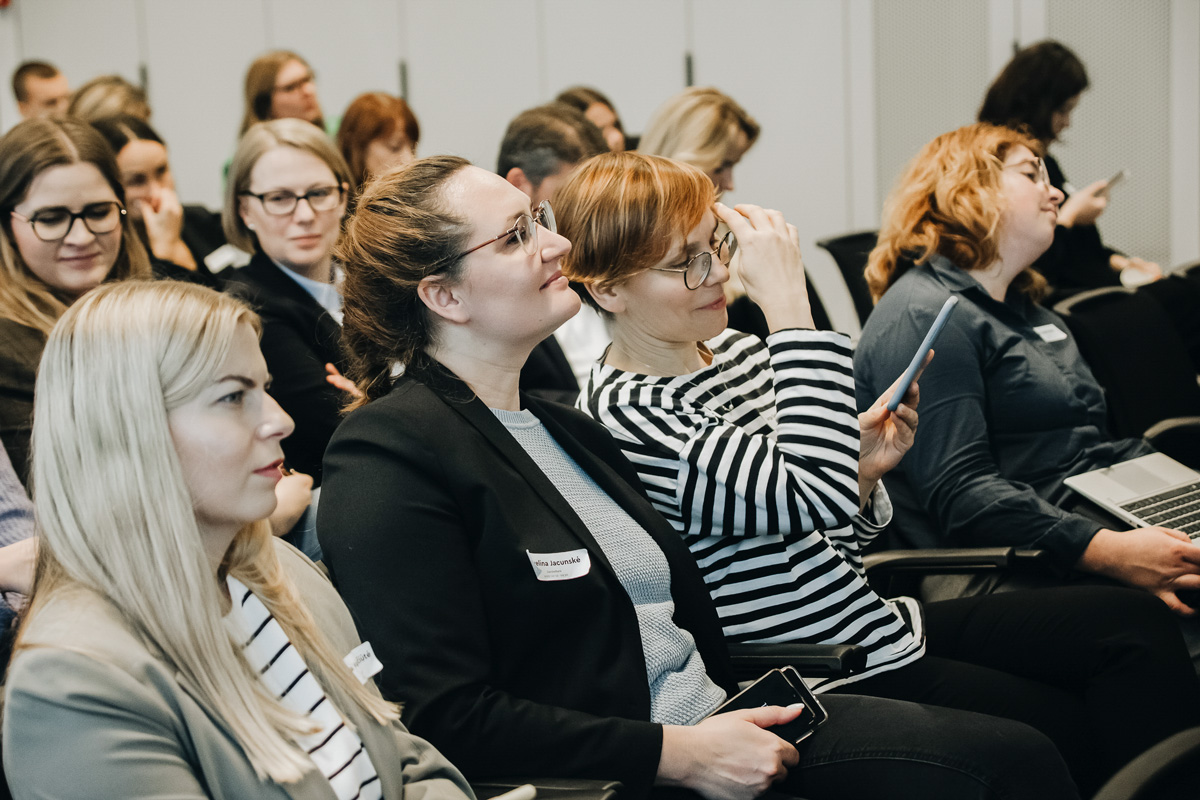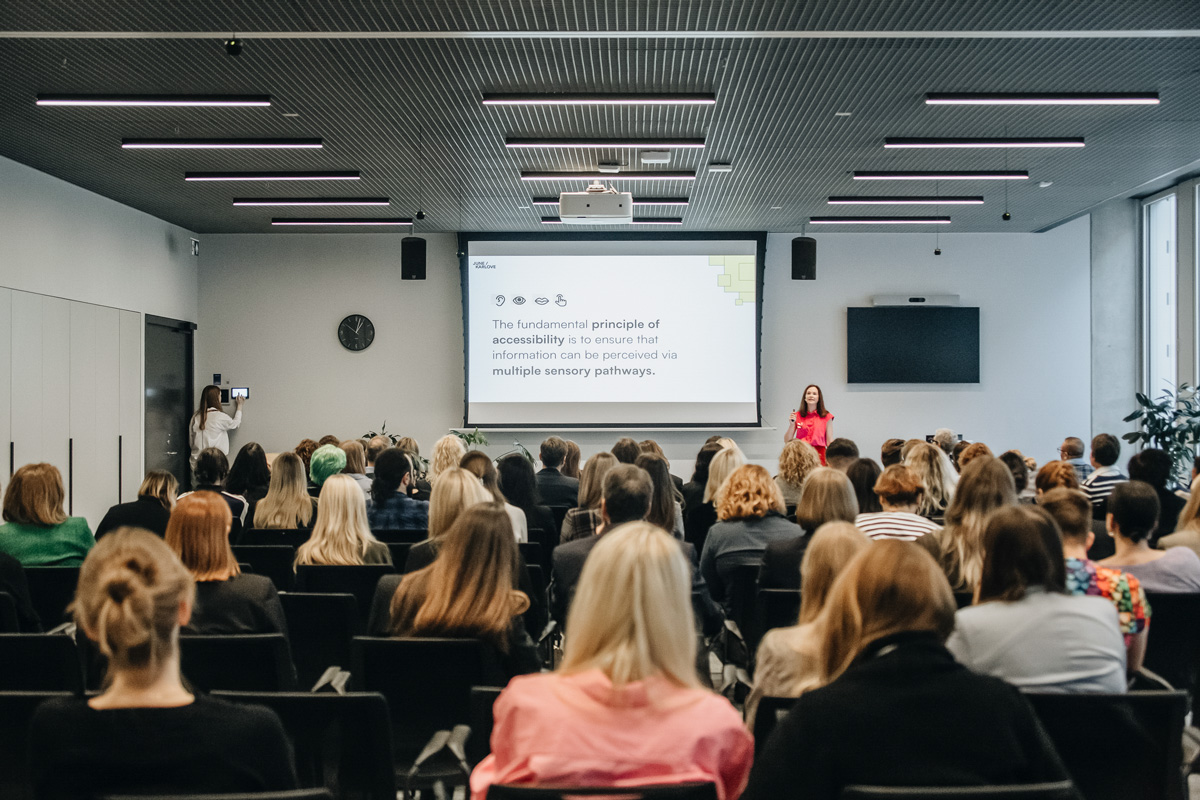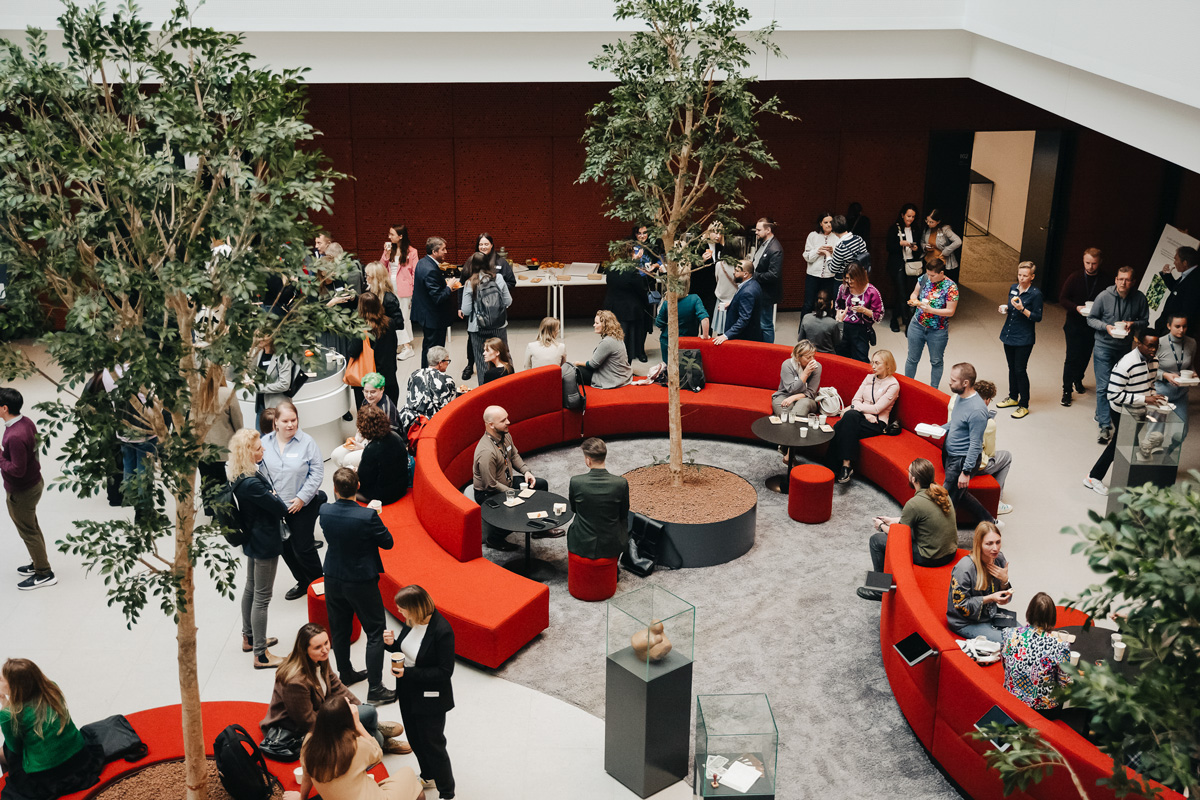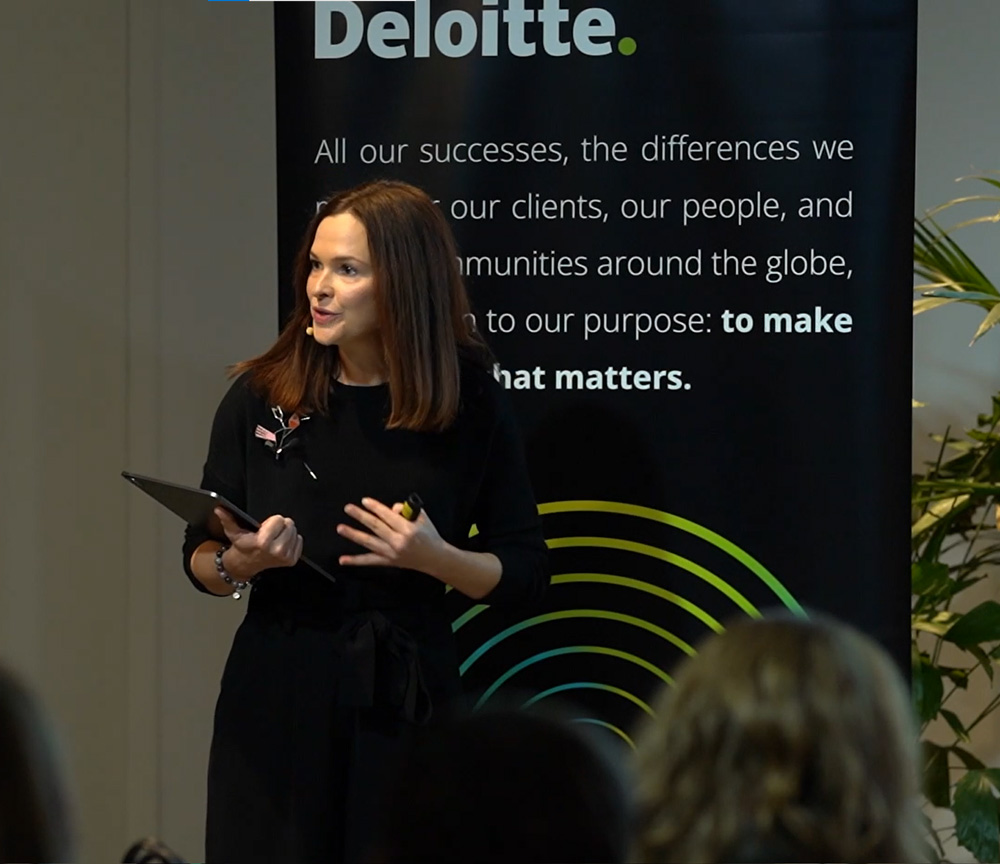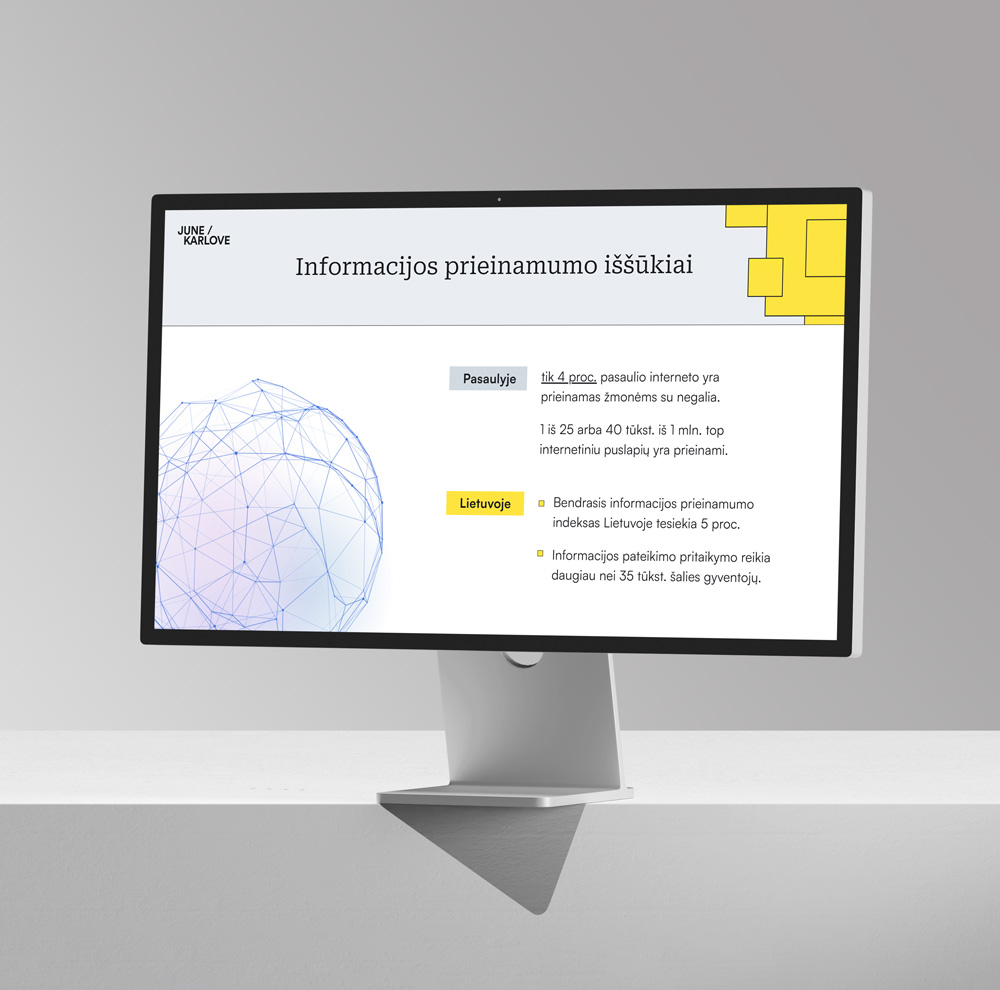Reframing accessibility in diversity & entrepreneurship – a keynote for Nordic-Baltic business leaders
For its third annual Nordic-Baltic Diversity & Entrepreneurship Conference, the Swedish Chamber of Commerce in Lithuania — in partnership with the Embassy of Sweden in Vilnius — gathered business leaders, innovators, and policymakers to explore how diversity fuels entrepreneurial success.
We were invited to deliver the keynote on Digital Accessibility – A Catalyst for Inclusive Entrepreneurship, reframing accessibility from a compliance requirement into a driver of innovation, market reach, and business growth.
The challenge ahead
While diversity is a familiar topic in the region, digital accessibility often sits on the sidelines of that conversation. Many still see it as a technical or legal requirement, rather than a strategic opportunity to reach more people, create better experiences, and build future-ready products and services.
How we approached it
Our keynote set out to change that narrative. Through stories and examples, we showed how accessible design benefits everyone — whether navigating permanent, temporary, or situational barriers — and how it can strengthen brand reputation and unlock new markets.
We brought the audience into the experience. Participants turned on screen readers on their own devices, navigated both accessible and inaccessible web elements, and felt for themselves how design decisions affect usability. This exercise turned abstract principles into a tangible, memorable moment.
What changed
The keynote sparked deeper conversations and new commitments:
- A broader view – leaders began to see accessibility as an innovation driver and UX best practice.
- Lasting impressions – the live demo created a shared “aha” moment in the room.
- Plans taking shape – several organisations expressed interest in accessibility evaluations, maturity assessments, workshops, and embedding accessibility into ESG (Environmental, Social, and Governance) strategies.
The conversations didn’t end in the room — they set the stage for tangible steps toward more inclusive business practices in the Nordic-Baltic region.



